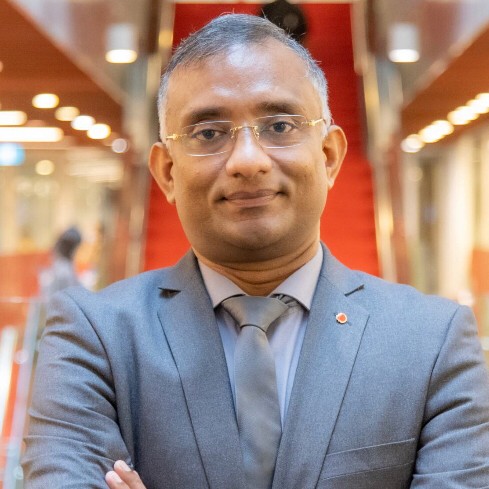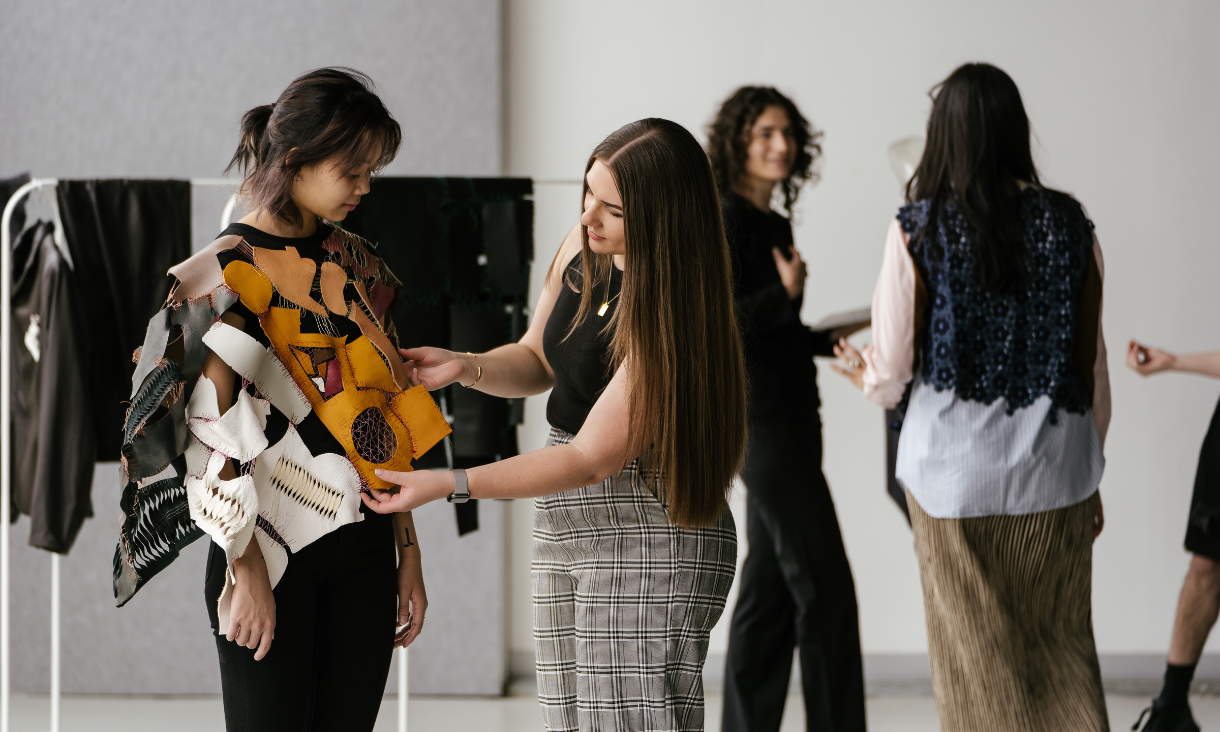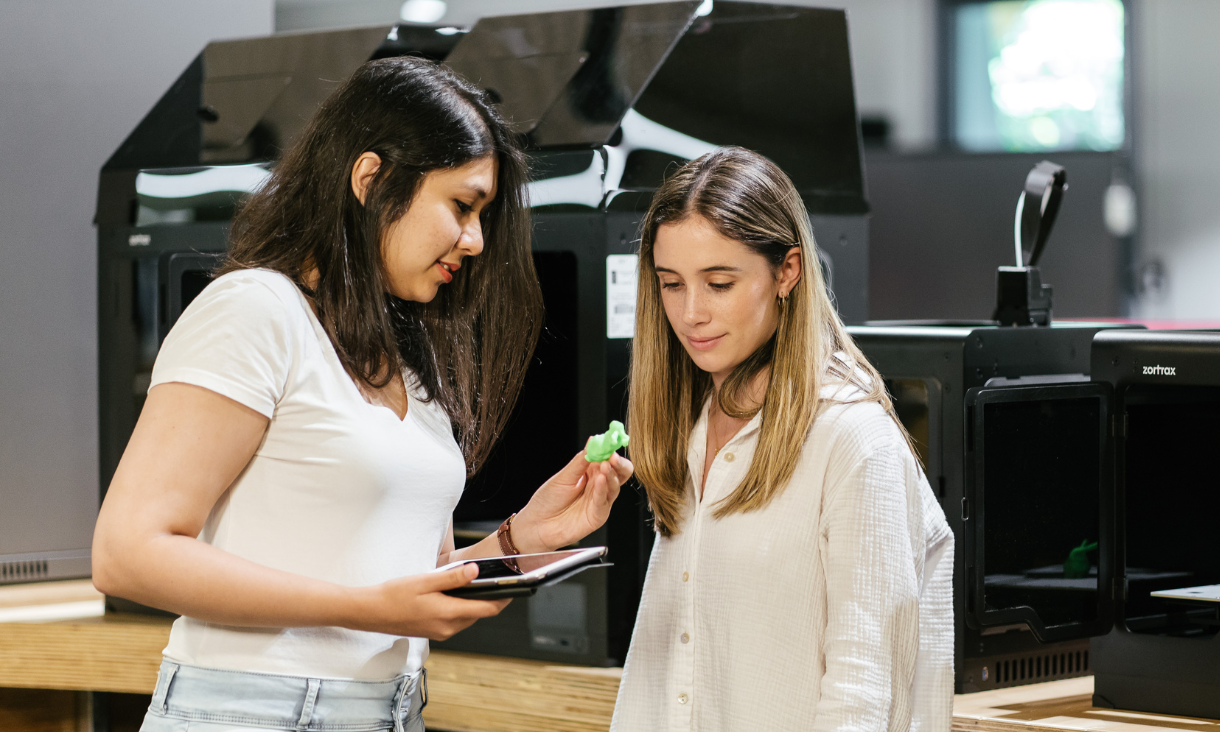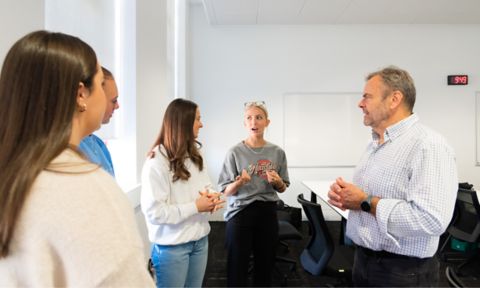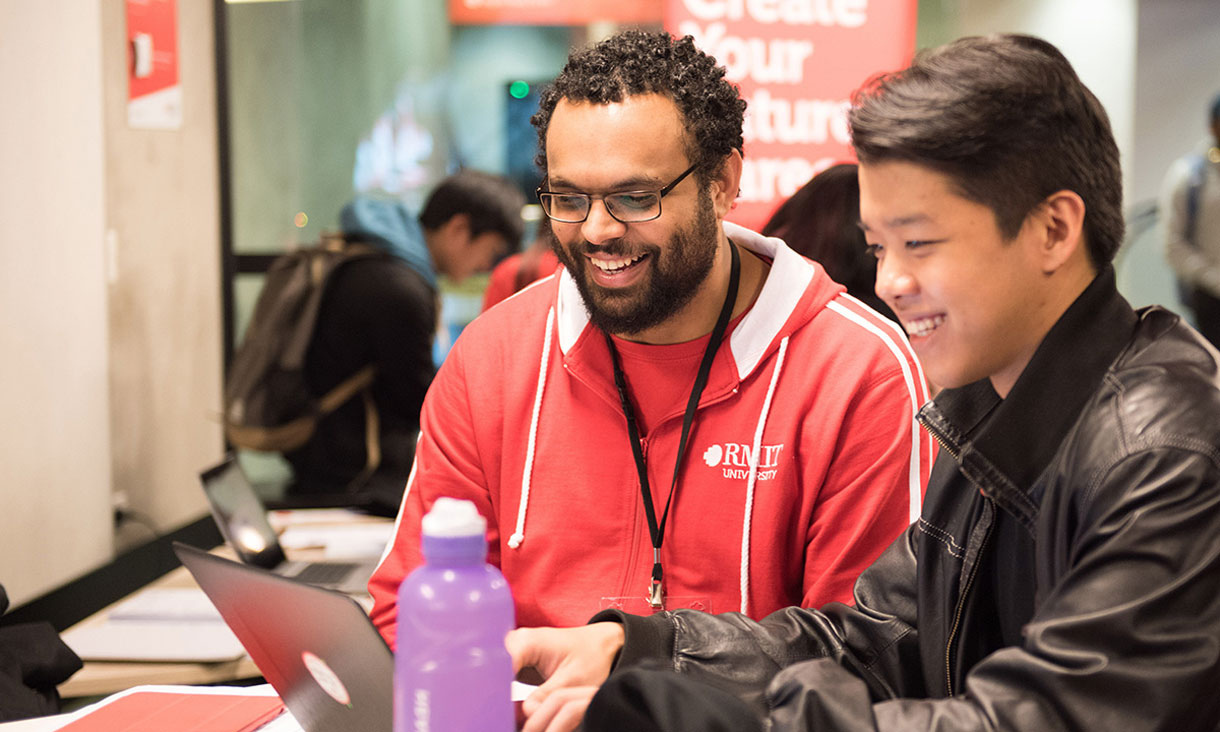Speaking with Dr Majo George about the remarkable achievements of RMIT Vietnam students in various prestigious national and international business case competitions over the past few years has provided new insight into an innovative teaching methodology, that complements current teaching practice.
Majo and his team of academics and support staff have been encouraging, preparing, and assisting RMIT Vietnam students to compete in a variety of business case competitions. It’s clear that Majo and his team have taken great personal pride in this project, as they have undertaken most of the activities outside of their normal duties.
What began in 2015 as a single team entry into the HSBC Business Case Competition, initiated by Melvin Fernando and HSBC Vietnam, has gained such popularity that a student club (Golden Flames Competition Club) has been formed to support the increasing number of students eager to compete in various business case competitions.
Many of the business case competitions are based on actual business challenges for which student teams must devise innovative, adaptable, and flexible solutions based on constantly shifting business conditions, company strategies, or government policies.
Following RMIT Vietnam's no-exam policy, the industry typically provides cases to solve as part of the course assessments, which are referred to as authentic assessments. These additional competition preparation practices of authentic assessments provide practical support for RMIT students to adapt and apply the theoretical knowledge they have learned in class to solve real business problems, which in turn enhances the authenticity and quality of their final assessment.
Business case competitions teach students skills not found in textbooks due to their practical and industry-oriented nature. They require students to think laterally and creatively from multiple perspectives.
"The atmosphere [of] positive learning...the way [students] learn something [is] the way industry wants [it], and it's not just theory."
This "non-traditional" method of teaching and learning also means that Majo and his team are not only seeking students with High Distinctions or even those in their final year of study. For example, Nguyen Dao Cat Tuong, a first-year Bachelor of Digital Marketing student, was a member of RMIT's winning team (Team Dynamix) at the 2022 national HSBC Business Case Competition. Despite being the youngest and least experienced team member, she was named the most outstanding presenter in the competition. This demonstrated that any student with sufficient ability and enthusiasm could gain recognition in a competition.
The process of preparing for a competition is a lengthy one. If there is only one team authorized by the university to represent RMIT Vietnam, an expression of interest will be sent to all students, and each student team will be required to register and submit a CV. An expert panel from the university would then review each application, observe the presentations, and select the team or team members from multiple teams to represent RMIT.
If there are no restrictions on the number of teams participating in a competition, students can choose their teammates and register independently. Each team can then seek mentoring/coaching from Majo, his team, and/or other members of staff. Students have demonstrated that they appreciate the freedom to select their teammates for a competition.
The Golden Flames Business Club has become a popular place to meet other students with similar interests to participate in competitions and form new teams suited to various competitions. Typically, a strong team is comprised of individuals with diverse abilities and theoretical knowledge who have pursued different academic disciplines.
"A strong team is comprised of individuals with diverse talents and skills," according to Majo.
Before regional and international rounds, business case competitions typically consist of a preliminary round, a zonal round, and a national round. The teams must solve a variety of cases in each round, present to panels of high-level executives from the industry, and answer various challenging questions. After a competition, not only the winning teams but also most participants are typically offered internships, jobs and other opportunities based on their performance.
Members of the RMIT Golden Flames Competition Club have now won 18 national and international business case competitions since the beginning of the academic year.
Majo and his team mentor the students and prepare them for competitions in a significant way.
"You can observe the talent of these students. They are intelligent and think differently... I simply provide them with opportunities and inform them that I do not teach and that they must develop their initiative. I believe in preparing our students for the workplace, the industry, and for facing challenges."
Majo has noted that businesses are becoming increasingly keen to become involved.
"It's a win-win situation for both the company and our students, who are very enthusiastic about participating in competitions where they can learn about current business cases and the industry is more than pleased to be able to consider free and innovative solutions to their problems,” Majo says.
Majo and his team mentoring and coaching for the competitions fit well with authentic assessments as opposed to a style of teaching based on a more formal final examination. The methodology encourages students to be adaptable, receptive, and creative. Students respond positively to the method of instruction. During competitions and practice, students receive constructive feedback that enables them to adapt and improve their ability to develop solutions. Students who have participated in competitions are better able to perform well on their final assessments, allowing them to present their final solution to the industry as part of their assessment, encouraging the students to demonstrate their abilities and potential. In many instances, not only does the industry select the winning team, but will also provide internship opportunities and valuable feedback which is even more valuable because it comes from actual industry practitioners.
Majo takes pride in the fact that students who compete in business case competitions rarely lack internship opportunities at their preferred companies and most are now working with elite companies in Vietnam and abroad.
"Companies place a high value on [RMIT Vietnam students'] readiness for the workforce. Therefore, finding jobs and internships is never an issue."
It is not only students participating in the competitions who benefit from success in competitions. The success of students participating in these business case competitions has positively impacted the reputation of RMIT university in Vietnam.
"Every year [RMIT students win] so many competitions [and the university and students receive so much media coverage] ... So, it has a big impact."
RMIT has rapidly gained a reputation in Vietnam as a highly industry-focused institution that effectively prepares students for life and work after completing their studies.
"At RMIT Vietnam, we are creating managers, entrepreneurs, and leaders. These activities, such as encouraging students to participate in competitions, will benefit them, which is why these opportunities offer such a positive learning experience [for students]."
Dr Majo believes that even given the already outstanding success, there is still room for growth in business case competitions for RMIT Vietnam students. Due to limitations in funding, RMIT Vietnam students and mentors have been financially constrained to only enter competitions with no registration or travel cost. This has proved an impediment to participating in more internationally renowned business case competitions. While the story of successful students in the business case competition is widely reported in Vietnam, the initiative has not received as much attention on other RMIT campuses.
Majo and his team would like to see RMIT's Melbourne students participate in business case competitions like those in which their Vietnamese counterparts have been participating. An attempt was made in 2019 to promote interest in the business case competition among Melbourne students by holding a business case competition on the Melbourne campus. However, the competition was postponed indefinitely due to the onset of the COVID-19 pandemic.
Now that the world is regaining some semblance of normalcy in the post-COVID-19 era, Majo is hopeful that further opportunities will present themselves.
"There are many ways we can help our students to develop...we hope to implement this project globally across all RMIT campuses so that all RMIT students can benefit from this method of teaching, which will help them become future leaders in their respective fields."
Story by: Thien Bui, Senior Planning and Initiatives Advisor, RMIT University
